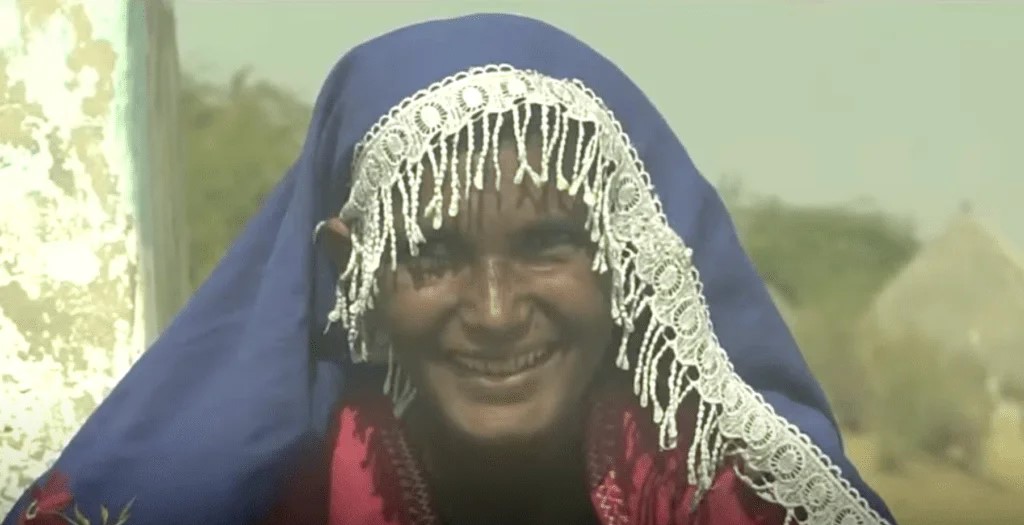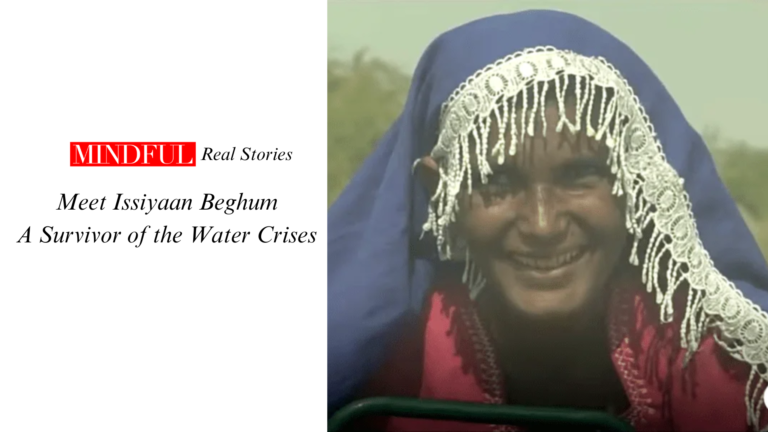Issiyaan is a bright young woman who has fallen victim to the devastating consequences of the water crisis in Pakistan. At just 26 years old, instead of pursuing her passions and dreams, she is grappling with a lifelong disability.

The water crisis represents a harsh reality for her and millions of others living in her village and other water-deprived regions worldwide. For those who spend a significant portion of their lives in search of water, it is worth more than gold; they sacrifice their present and future for this essential resource.
This crisis feels like a war against the escalating scarcity of water—a daily struggle that can lead to injuries and lifelong disabilities for individuals like Issiyaan. For many, water that is merely a tap away for most of us becomes a precious and hard-fought commodity.
The burden of fetching water has profoundly impacted Issiyaan’s life. When she speaks about her disability, her sorrowful story emerges, accompanied by a sigh and a heavy heart.
On a typical afternoon, Issiyaan was fulfilling her daily responsibility of fetching water for her family alongside other women and girls in her village. As she lifted the heavy clay pot filled with water onto her head, the weight became too much for her shoulders. She lost her balance and fell to the ground, resulting in a permanent disability. Now, in the prime of her youth, Issiyaan lives with a bent back that severely restricts her physical movement.

“This has entirely disabled me, I can’t lift heavy objects anymore” – Issiyaan shares her tragic situation after the accident.
The most heartbreaking reality is that despite this painful condition, she has no choice but to be involved in the unpaid labour for water since, as a woman, she is made to feel responsible for the water needs of her family.
Adding to her struggles, Issiyaan now has to rely on small plastic bottles for hauling water, as her shoulders can no longer bear the weight of clay pots after the accident. Owing to the minimal capacity of the plastic containers, she makes several trips to water collection points every day to fulfil her household’s water needs. Each movement on the rugged path to the nearest well worsens her condition, causing further pain and discomfort. Each morning she confronts the dilemma of choosing between letting herself and her children suffer from thirst or risking her life by walking the same tragic route just to attain water that might be too unsafe to drink.
The course of her life has been changed forever just because of age-old water collection practices and traditions.
Sadly, Issiyaan is not alone in facing the consequences of the water crisis. Many other women and children have also struggled to bear the weight of heavy clay pots and containers, putting them at risk of permanent disabilities. Thousands of heartbreaking stories of “water labor” remain untold, as these victims suffer in silence, grappling with daily hurdles and enduring pain to ensure the survival of their loved ones.
Tayaba Organisation has supported women like Issiyaan in their everyday struggles, hoping to bring some much-deserved ease in their distressed lives with its Help-2-Others (H2O) initiative.The H2O Wheel can give water-labourers a ray of hope, empowering them with an opportunity to use their precious time and energy in receiving an education, learning a new skill, financing their children’s education, and supporting themselves and their loved ones.
Credits: Tayaba Organization



